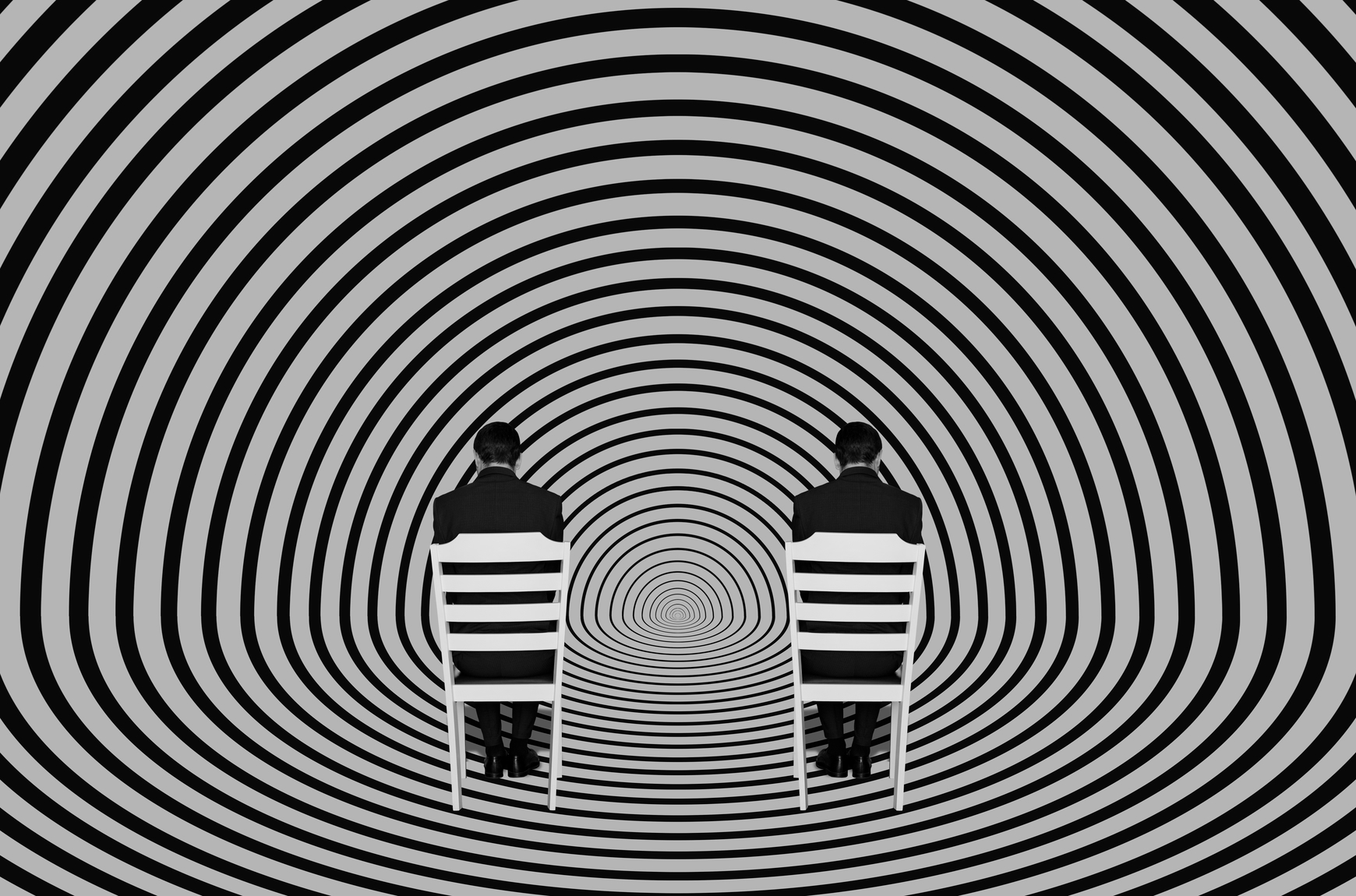Times feel particularly tough right now. It might seem like wherever you turn, there’s bad news about the economy, the planet, politics, society, work, other people, your own health, and so on. The negative can feel like it totally outweighs the positive. So what’s with this preoccupation with the negative?
It turns out, that pervasive feeling of everything you notice being terrible, is in fact your brain’s way of trying to protect you from future harm. It’s something called negativity bias.
What is Negativity Bias?
We are hard-wired to notice negative experiences much more than positive ones. We remember them more effectively, we focus on them more, and it even takes more brain power to process negative experiences, which means they stick better. Positive experiences need to happen at a rate of up to five times as often for them to make the same impact on our minds.
This is negativity bias. It is a universal adult experience. We all notice the negative more than the positive, and it takes us more effort to remember and embrace the positive experiences we have.
What About Confirmation Bias?
Since we all experience negativity bias at least to some extent, it can play very effectively into confirmation bias. Confirmation bias is a tendency to notice, remember, and favor information or experiences that already fit in with our existing assumptions and mindset.
When we know things are negative, we often go looking for more negative things to fulfill our confirmation bias. We will remember our negative findings even more effectively, giving them more credit for accuracy than we would for something positive.
What Are the Psychological Effects of Negativity Bias?
Negativity bias can cause a host of issues for us, especially when it feeds into itself. This way of viewing the world can hinder personal growth, and damage your emotional wellbeing. Some impacts include:
- Relationship Difficulties
- It takes 5 positive interactions to undo one negative interaction in a relationship.
- Lower Emotional Well-Being
- The feedback loop of negativity bias and confirmation bias can make negative experiences feel personal. The more negative experiences you collect, the harder it is to rebalance. It can impact your mood and your ability to be generous or patient with others. Blame and negative self-talk can come into play, lowering your emotional well-being.
- Work Stress and Anxiety
- Criticism and competition at work can trigger defensiveness and fear, feeding your negativity bias toward your workplace.
- Perfectionism and/or Loss of Motivation
- When it seems like any imperfection will be a total failure, you will either expect perfection of yourself at all times, or lose all motivation to try.
- Fear of Innovative Thinking
- Preoccupation with a negative reception to a creative idea or innovative activity you suggested in the past can make you much less likely to repeat the risk of offering innovation.
- Difficulty in Decision-Making
- When all prospects seem like they’ll have a negative outcome, not deciding at all can seem like the safest option. You may also have a harder time with balanced risk assessment when negativity bias is unchecked; risks may seem outsized or insurmountable when they are actually approachable.
So is that it? Are we all stuck, trending toward only noticing and remembering the negative?
It Is Time For a Mindset Shift
Negativity bias is inherent—evolutionary—but it isn’t the only way we perceive things around us. We are capable of noticing the positive! It simply takes extra effort and organization to make sure that effort sticks. You aren’t alone in feeling that negativity bias has caused problems for you, but you also aren’t alone in wanting change or in making it, either.
Cultivating a Growth Mindset
Most of us operate in mostly fixed mindsets, where we assume that abilities are inherent and failures happen due to a lack of ability, not a lack of effort. A growth mindset is the understanding that each of us is capable of making change, growing into sets of skills or abilities, and we can all approach new tasks and activities with the goal of success through effort. It includes understanding that a lot of skills and abilities are not inherent, but are learned, and can be acquired through support and effort. Setbacks and failures are part of the process of growth, not an indication of inherent worthlessness.
A growth mindset requires work to cultivate but can unlock a lot of potential and freedom for you, including reducing the impacts of negativity bias.
Growth Mindset to Combat Negativity Bias
A growth mindset can combat negativity bias directly. In the list of impacts of negativity bias above, a lot of them are byproducts of a fixed mindset. If you assume change can’t happen because a single negative experience happens, then you’ll stifle growth in yourself to ensure negative experiences stop happening. Fixed mindsets inhibit collaboration, innovation, or seeking feedback/constructive criticism.
When you embrace a growth mindset (and remember, this takes effort, it is a learned skill, not an inherent one!), you can more easily see that the negative experience you had was in fact simply a part of a process of growth. It isn’t so negative when it’s part of the process toward success, is it?
Seeking the Positive; Embracing Optimism and Realism
Counterbalancing a negativity bias is not a passive experience. You can take the reins, and work to be mindful of the good all around you. This emphasis and attention on positive things doesn’t eliminate the bad, it just makes it harder for the bad to completely outweigh the good. It brings you to a more realistic, but also optimistic, mindset.
Having agency over your mindset can be empowering, and calling your attention to the good around you is a way to take the reins for yourself. You can combat your negativity bias by:
- Writing a Gratitude List Each Day
- At the end of the day, write some things you’re grateful for. Sit with the memories, trying to experience these good things a second time as you write them down. This exercise can really cement positive parts of your day, like lovely weather or a kind word from a friend, emphasizing them in your mind.
- Cultivate Hope
- Try to remind yourself of your hopes and dreams. What makes life happy for you? What do you enjoy? What goals have you set for yourself, and what things are you looking forward to? Consider an optimistic future. Hope can be a powerful thing, an uplifting thing.
As you consider these questions, see if you can take some steps to increase your access to joy. Clear some time in your calendar for the things you love, that may have been put aside in the past. Prioritize effort in yourself and your emotional well-being.
- Practice Simple Mindfulness
- When you are enjoying a cup of coffee, are comfortable on your couch, or are petting a dog and feeling happy, really experience it. Notice how you feel, physically and emotionally. Take your time, and pay attention to the moment. Savoring experiences like this can help emphasize them in our memory, allowing a positive experience, however small, to balance out negativity.
One of our therapists’ favorite quotes by the author Kurt Vonnegut emphasizes this simple mindset switch, “And I urge you to please notice when you are happy, and exclaim or murmur or think at some point, ‘If this isn’t nice, I don’t know what is.”
- Find Your Community
- Looking for people in your life who offer positive experiences, and who prioritize kindness and understanding, can help you further your efforts to counterbalance your negativity bias. Noticing positivity in your life can include noticing it in others, and prioritizing time with those people can help support your personal growth toward a more realistic mindset.
Support Your Efforts With Therapy
Negativity bias can feel overwhelming and all-consuming, especially in tough times. Additional support can be a massive help in letting you prioritize finding the good in the world and counterbalancing an inherent focus on the negative. A therapist or coach who offers a grounded perspective that acknowledges the bad things while balancing them with the good can help. Strategizing for ways to find the good can also often be easier in a therapy setting, with someone to bounce ideas off of and to use for accountability in future efforts. We at Kellen Mental Health can offer you that balance. You can contact us for a free consult, to see how we can help you rein in your negativity bias.


